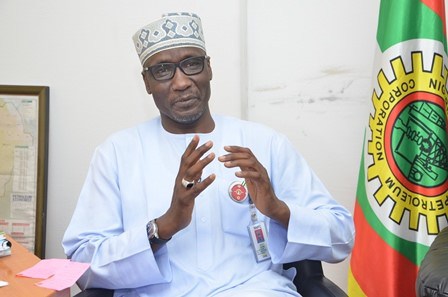Clear facts have emerged on why the chances of local content adoption in the freighting or shipment of ordered crude oil to international customers’ by the Nigerian National Petroleum Corporation (NNPC) cannot be that feasible.
Even though the provisions of the prevailing Oil and Gas Local Content law supervised by the Nigerian Content Development and Monitoring Board (NCDMB), allows that, investigations by Business Hilights revealed that almost all foreign buyers of Nigerian crude had perfected their shipping and delivery arrangements with their preferred shipping firms ahead of placing orders at NNPC.
Giving clear insights on why local shippers are yet to secure crude freighting contracts from NNPC, former sole administrator to the Maritime Academy of Nigeria (MAN) Oron, Engr. Olu Akinsoji explained that “NNPC can’t give out contracts to people without ships first of all and they can’t force people to own ships when the policy framework doesn’t support such business. If the nation had good policies that allow cargoes to be available to people who have monies to buy ships, people would buy ships to get this business.”
“However, the cargo isn’t available because we sell crude oil to people who already have arrangement for who to carry the crude. Some have signed arrangement with the ships to convey the crude before paying for the crude. So, that is the problem.”
Akinsoji equally lamented that NNPC’s shipping arm ‘NIDAS Shipping’ hasn’t been able to instigate policies to boost indigenous participation.
Continuing, he recalled that “British companies exporting goods have first priority for a British man to present his intentions to carry the cargoes. They don’t throw this opportunity to the whole world as we do in Nigeria. Nigeria generates cargoes but we aren’t in charge of the carriage. We can change the situation with policies that positions the nation to dictate the terms of carriage.”
“Some countries have tailored their policies to attract carriage of Nigerian cargoes better than Nigeria that owns the cargoes. When we dictate the carriage, we develop the capability of ship owners, they employ seafarers and we also improve shipping infrastructure and the human element. The government would also gain from tariffs that the indigenous operators would pay,” he added.
Industry pundits are of the view that since no indigenous operator has benefitted from the NNPC shipping arm’s management of crude affreightment, ship owners have described the company as a wrong approach to address the lack of indigenous participation in the business.
Besides, the Chairman, Integrated Oil and Gas, Capt. Emmanuel Iheanacho, who was at the recent National Transport Summit organized by the Chartered Institute of Transport Administration (CIoTA) Nigeria, argued that “For NNPC to re-floated NIDAS shipping; this means NNPC owns NIDAS. This is contrary to what we are advocating. We are advocating private sector involvement rather than government involvement in processes and businesses that the private operators do better.”
“If NIDAS Shipping thrives, it means some of the private sector shipping enterprises that have already established themselves would fall down. This isn’t what we want. Government should provide an enabling environment, encouragement, support and free competition to drive the growth of the industry and the structure of shipping to help the nation’s economy.”
The former minister therefore called for a strategic meeting between ship owners and the executive management of NNPC to ensure that Nigerians participate in crude affreightment, insisting that the meeting would avail ship owners an opportunity to inform NNPC of their capabilities while NNPC could explain their concerns.
Iheanacho made it clear that “NNPC is managed by Nigerians and there is nothing difficult in arranging a meeting where crucial stakeholders could express themselves. Those Nigerians who know that they have the capacity to provide these services should say it. If NNPC has a contrary opinion, it should also say it. We really should have an opportunity to discuss these issues. It is very important that Nigeria should add value to its trade and the crude oil carriage is the easiest place to start with.”









